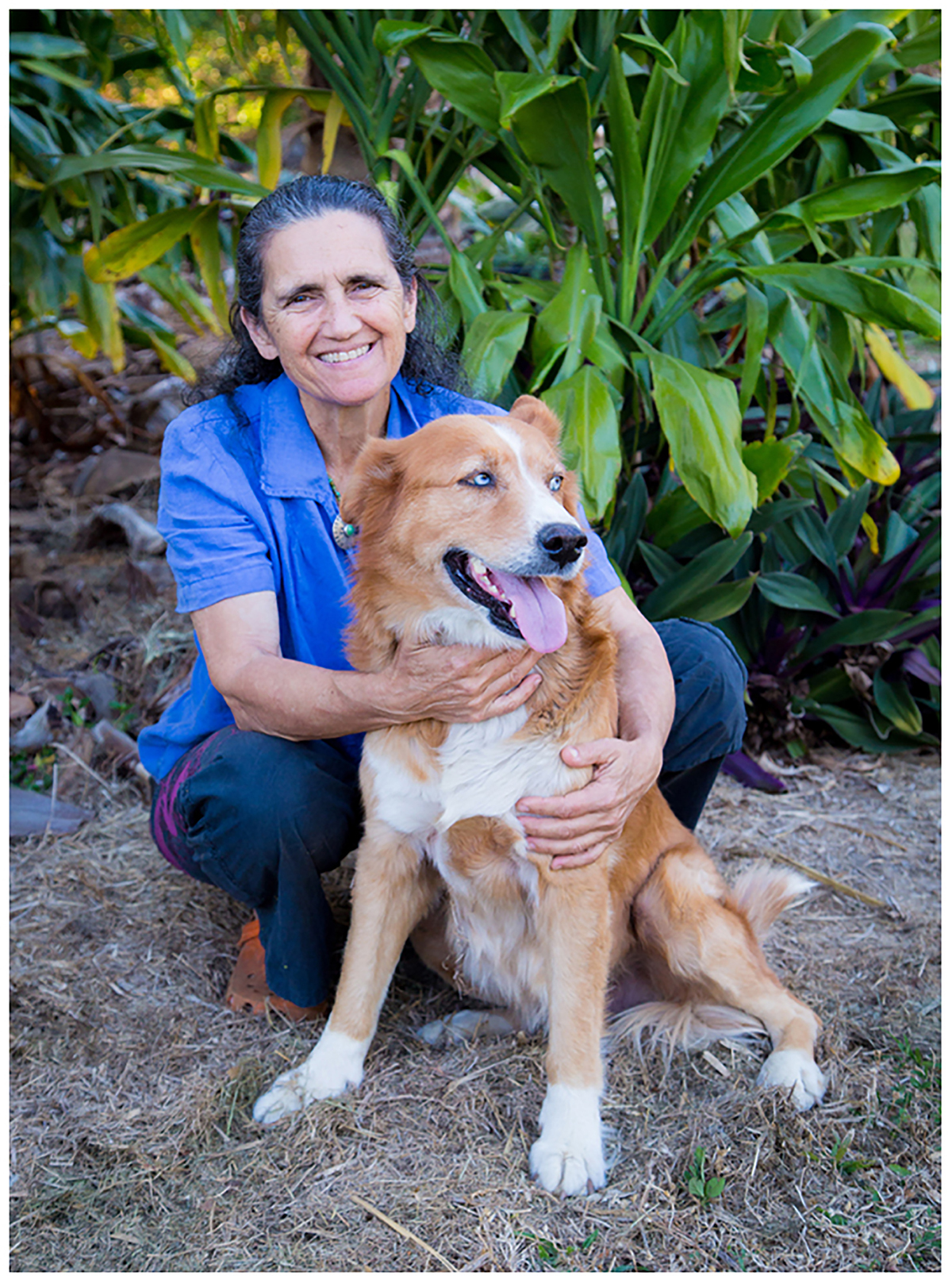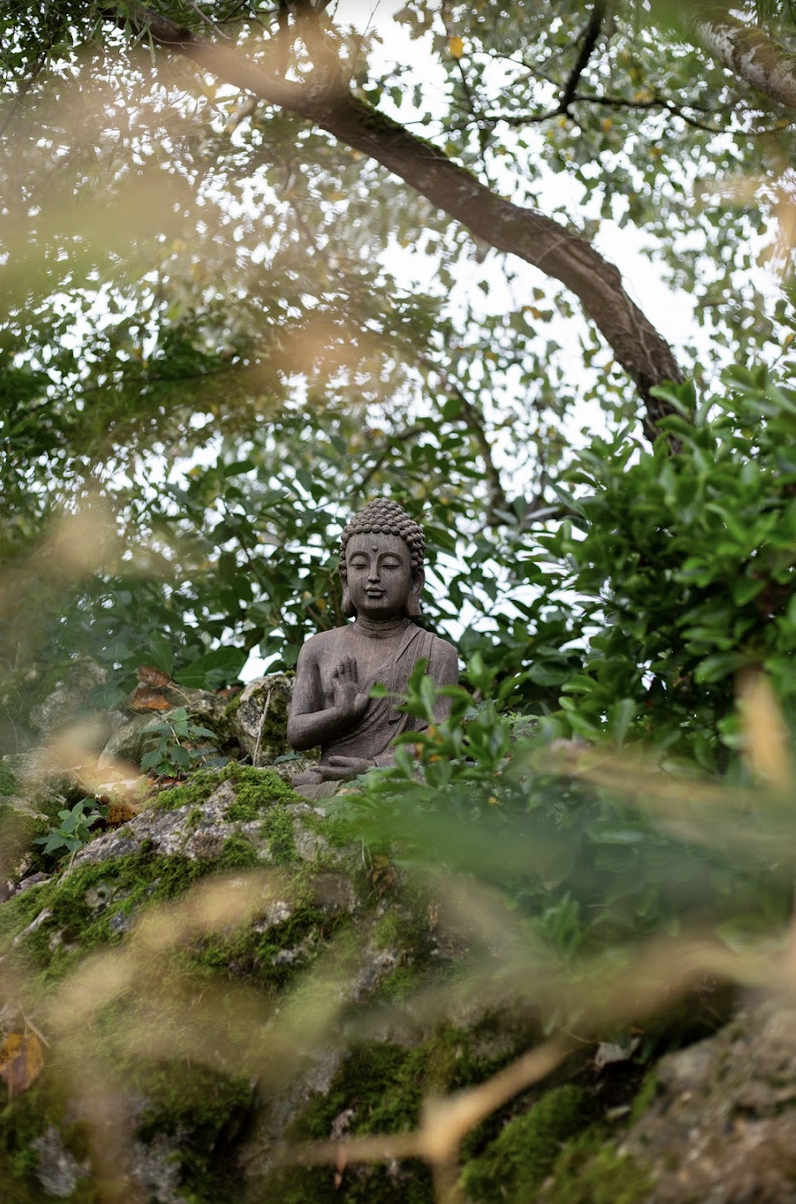by Rashani Réa
When I first arrived at Plum Village, France, something nameless and imperishable opened inside me. I found refuge in my own being, and the fruit of my daily practice was an ineffable joy and unstoppable outpouring of creativity. I began writing songs and poems inspired by Thầy’s teachings. With his permission, I set his poetry to music and, as a gift to the many Vietnamese children, women, and men who touched my life deeply at Plum Village,
by Rashani Réa
When I first arrived at Plum Village, France, something nameless and imperishable opened inside me. I found refuge in my own being, and the fruit of my daily practice was an ineffable joy and unstoppable outpouring of creativity. I began writing songs and poems inspired by Thầy’s teachings. With his permission, I set his poetry to music and, as a gift to the many Vietnamese children, women, and men who touched my life deeply at Plum Village, I spent several days in a small church near Plum Village with other Sangha members, recording an album titled Take Refuge in the Moment.
I sent the first copy to Thầy and Sister Chân Không, and received a note back from Sister Chân Không, thanking me. They had listened to the album several times and were touched by the beauty and quality of the recording and the presence of the living Dharma, which they could feel throughout the music. She and Thầy invited me to share my songs at the beginning of Thầy’s talks at Plum Village and at their upcoming retreats throughout the United States. It was a great honor to receive such an invitation, and was a life-changing experience to share my songs with hundreds of people at the beginning of Thầy’s Dharma talks.
The following year, Sister Chân Không and I recorded an album together called A Rose for You, The Buddha to Be, a collection of songs by Thầy, sung in Vietnamese by Sister Chân Không. After each song, I read the English translation accompanied by koto (a zither with thirteen strings), ocarina (an ancient wind instrument), and shakuhachi flute.
In 1988, grieving the death of my mother, I created a series of collages incorporating words by Thầy, Rumi, and Hildegard von Bingen. For hours at a time, I tore and cut colored paper and hand-lettered inspiring, simple quotes—to remind me of my purpose for being alive. Grief became my fuel and my medicine. After meeting Thầy, a profound alchemy occurred. Grace had entered my life unexpectedly.

The following spring, I arrived at Plum Village with the original, hand-lettered collages. Thầy invited me into his cabin for a cup of tea, and I placed twenty-one of these Dharma collages on his table. As he slowly looked at each image, his face lit up. He loved the colors and the way I’d interwoven his words and abstract designs. I told him I had designed them as colorful reminders that peace is ever-present, regardless of circumstances. He acknowledged my constellation of collages as visual, silent bells of mindfulness. Later, when they were printed and distributed widely as note cards, he was delighted.
One time, Thầy invited me into his cabin and handed me a handwritten poem, “The Song of No Coming and No Going,” and asked if I would set it to music. He said, “This is the kind of song we need to sing at the bedsides of our loved ones who are dying.” As he handed me the poem, it felt as though he was handing me sunlight, rivers, clouds, and all of creation. Rain and snow, wind, wood pulp, and the cry of every tree felled by human tools and machines. The entire cosmos in a simple sheet of paper. He silently and lovingly offered me the impermanence, emptiness, interdependence, and mutability of all physical matter and the many non-paper elements that had made it possible for this single piece of paper to be. Although he had been sharing about interbeing and emptiness for years, this was the first time I understood and touched the countless non-paper elements that are in every sheet of paper.

Less than a year after I set “The Song of No Coming and No Going” to music, my father fell into a coma. After several days in intensive care, he was taken to a small hospice. My brother and I took turns spending time with him. My night shift was during the full moon. Sensing that it might be the last night of his life, I held my father’s hand and sang to him for several hours. Unbound presence became the holy sacrament. The eloquence of spilled moonlight sang silently with signs of grace.
It is with joy and gratitude that I share the collages featuring Thích Nhất Hạnh’s wisdom sayings in a new book, Go Slowly, Breathe and Smile. On the page preceding each collage are Thầy’s words reflecting that image. Perhaps choose one or two a day and integrate them into your practice. May they reverberate through you like bells of mindfulness.
Adapted from Go Slowly, Breathe and Smile by Rashani Réa and Thích Nhất Hạnh, reprinted courtesy of Mango Publishing Group.

Rashani Réa, True Golden Sand (pronouns she/her), is a member of the Order of Interbeing who lives in Hawai‘i. She is the coauthor, with Thích Nhất Hạnh, of a new book of her collages with the wisdom sayings of Thầy titled Go Slowly, Breathe and Smile. The book’s afterword is by Sister Chân Không.

